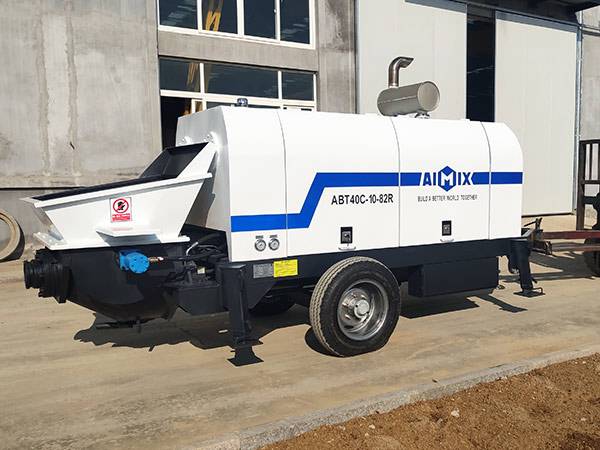


Discover how a concrete trailer pump enhances efficiency, reduces costs, and optimizes material placement in industrial construction.
Efficient concrete placement is a crucial aspect of industrial construction, directly influencing project timelines and costs. Traditional methods, such as crane-bucket systems or manual labor, often result in excessive material waste and slow progress. A concrete trailer pump emerges as an indispensable tool, offering high efficiency, reduced operational expenses, and precise material placement. By integrating this technology, industrial projects can optimize resource allocation while ensuring structural integrity.
Concrete trailer pumps streamline the delivery process, enhancing productivity while lowering overall project expenditures. Their design allows for seamless operation across different terrains, making them ideal for industrial-scale applications.
Unlike conventional pouring techniques, a trailer pump delivers concrete directly to designated locations with pinpoint accuracy. This eliminates the need for excessive manual intervention, minimizing labor costs and reducing the risk of errors. The high-pressure pumping mechanism ensures that even dense concrete mixes are transported efficiently without material segregation.
Operational expenses constitute a significant portion of any construction project. A stationary concrete pump reduces transportation costs by eliminating the need for continuous repositioning of concrete trucks. Additionally, lower fuel consumption and decreased labor dependency contribute to long-term financial savings. By maximizing concrete utilization, these pumps prevent material wastage, translating into a more sustainable construction approach.
Understanding the critical features of a concrete trailer pump is essential for selecting the right model suited to industrial demands. Various factors influence performance, durability, and adaptability in challenging environments.
The efficiency of a concrete trailer pump largely depends on its pumping capacity and pressure output. Higher pressure ratings enable the transportation of concrete over extended distances and elevations. Industrial projects should assess the pump’s cubic meter per hour (m³/h) rating to ensure compatibility with project requirements.
Given the demanding nature of industrial construction, selecting a pump with robust construction and wear-resistant components is paramount. Features such as hardened steel cylinders, advanced hydraulic systems, and automated lubrication mechanisms enhance longevity. Regular maintenance schedules, including hydraulic oil inspections and wear part replacements, are critical for ensuring continuous operation.
Proper utilization of a concrete trailer pump ensures maximum efficiency and extended service life. Adopting best practices in operation and maintenance can significantly enhance performance and reliability.
Positioning the trailer pump correctly reduces pipeline bends and pressure loss, facilitating smoother concrete flow. Minimizing unnecessary obstructions in the delivery path prevents blockages, ensuring uninterrupted pumping operations. Adequate planning regarding hose length and diameter further optimizes efficiency.
Routine checks on the hydraulic system, pumping pistons, and pipeline connections prevent unexpected breakdowns. Implementing a proactive maintenance strategy reduces downtime, prolongs equipment lifespan, and maintains consistent concrete delivery performance.
Industrial construction projects demand efficiency, cost-effectiveness, and precision. A concrete trailer pump offers a viable solution, significantly reducing labor intensity while enhancing overall productivity. Investing in high-quality equipment tailored to project needs ensures streamlined operations and long-term economic benefits.
